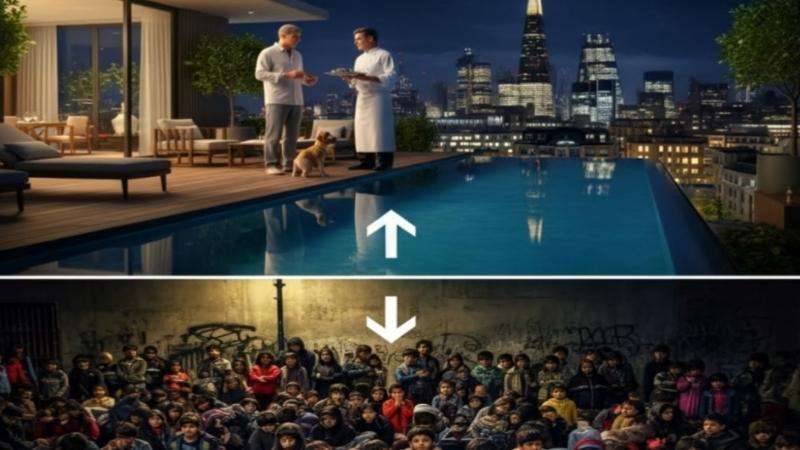Capsule hotels have been reimagined for a new generation of tourists, from spheres floating in the sky in Canada to recycled sewer pipes in Colombia. The world's first capsule hotel, established in 1979 in Osaka, Japan, must have resembled a morgue at night, with tidy rows of slender sleeping capsules, each holding a reclining cadaver.
However, the residents, who were primarily businesspeople who had worked late, would get up and return to the workplace the next day, appreciating this effective sleep aid that had prevented them from having to make the early morning trip home.
As the idea gained popularity, eager to experience this unique facet of Japanese society, tourists who were content to sleep in a room no larger than its bed started to bunk up with them. Today's high hotel room rates, driven by years of growing real estate costs, have boosted this generally inexpensive idea, which gives travelers on a tight budget less privacy than a hostel dorm and more comfort and connectivity than camping. With single-sex capsule hotels offering extra security, the primarily single-occupancy capsules also address the present surge in solo travel.
With the global capsule hotel market projected to reach $327m by 2031, curious hybrids have emerged to sustain the trend and attract new customers. They're tempting the TikTok generation with increasingly outlandish forms, from upcycled sewer pipes in the Colombian desert to space-age pods with a dashboard of ambient controls in downtown Sydney, Australia – all promising a unique experience and shareable stories for social media. Meanwhile capsule-cum-bookstores invite book lovers to snooze among the shelves, and boutique versions bring luxury to a traditionally no-frills market with fancy decor or promises of fluffy duck-feather duvets.
As the concept continues to reinvent itself, here are eight of the most extraordinary examples.
A sleep laboratory
Nine Hours, a chain of 13 hotels across Japan, from Fukuoka in the west to the north-east island of Hokkaido, has an unusual by-product: sleep data. In the Shinagawa Station (men only) and Akasaka branches, guests can sign up for a "9h sleep fitscan" service, where sensors detect everything from breathing to facial expressions to generate a sleep report that tracks their heart rate, identifies sleep apnea and even monitors snoring. In a sector where a novel or low-budget stay is often prioritised over comfort, Nine Hours' interest in how well its guests are sleeping sets it apart.
Across the franchise, the white, minimalist decor continues this clinical theme, while its rows of sleek, shiny sleeping pods would not look out of place on the set of a science-fiction movie. The name refers to the hotel's cost-cutting concept that reduces room rental to the essential nine hours, allowing seven hours for sleep and an hour on either side for washing and dressing. Just need a nap? Hourly rates are also available.
A desert oasis
The Tubo Hotel, La Tatacoa is just a 10-minute drive from Colombia's second-largest desert, the eponymous Tatacoa, famous for its clear starry skies. When you've taken in the giant cacti and curious rock formations of the Tatacoa's cinnamon-coloured sands, this rainbow of tiny, air-conditioned rooms with a shared swimming pool offers a welcome oasis. The 37 capsules are fashioned from concrete sewer pipes painted in candy colours, providing just enough room for a double bed. Almost half of the rooms have a shared bathroom, but the room rate is a snip and you've a shady garden, bar and restaurant on your doorstep. "This innovative and colourful place offers you a unique experience," says Ambar Quintana, the hotel's administrator. "It has everything you need to rest in a natural environment of fresh air and vegetation."
Immerse in nature
Suspended among the conifers like oversized Christmas baubles, the Free Spirit Spheres on Vancouver Island, Canada, feel "like you are floating in the canopy among the sleeping birds", according to owner Tom Chudleigh. The first sphere was introduced 25 years ago, driven by a desire to promote ecotourism and preserve Canada's ancient forests.
There are currently three spheres, each based on the principle of biomimicry and shaped with a giant seed pod or nutshell in mind: light but with a strong shell. "Eryn" is fashioned from Sitka spruce and has a dining area, sink and slightly undersized double bed inside; while more recent additions, "Melody" and "Luna", are fibreglass and have similar amenities but with full-size double beds that can be stowed. Each sphere is accessed via a spiral staircase wrapped around a tree, and is available to rent in temperatures as low as -20C, when even a trip to the composting toilet at the accommodation's base will feel intrepid.
The shape makes bespoke fittings a prerequisite, and every little detail has been meticulously crafted by Chudleigh, from walnut fold-out furniture that maximises the space, to door handles cast from bronze.
Cupboard love
In Oud Zuid, one of Amsterdam's most upscale neighbourhoods, guests are paying to sleep in cupboards. The quirky De Bedstee Hotel draws on the 17th-Century tradition of the Dutch bedstee (box bed), a bed concealed behind cupboard doors to create a cosy sleeping nook. The hotel's Art Deco features and acid-coloured wallpapers downstairs give way to a shabby-chic design in the first-floor dormitories, where the bedstee windows are framed by red gingham curtains and little wooden ladders lead to the capsules above. Relax in the hotel's small terrace garden or take a half-hour stroll to the Rembrandt House Museum in the city centre to see several historic box beds in situ.
Small but soothing
Inside a Brutalist building in Singapore's Chinatown lies a surprisingly serene interior. Opened in 2021 and based on an aesthetic it describes as "soft minimalist", KINN Capsule offers a Zen take on the capsule concept with walls painted in calming peachy tones and pale wood sleeping chambers fitted with crisp white bed linen. Even the smell of the place seems an antidote to its urban location as a special house fragrance designed to evoke the wildflowers of a Nordic forest hangs in the air. There are 72 capsules in total, sealed off with blackout blinds and spread across seven rooms, but the vibe is more boutique than bunkhouse.



_2.jpg)
_3.jpg)



.svg)
